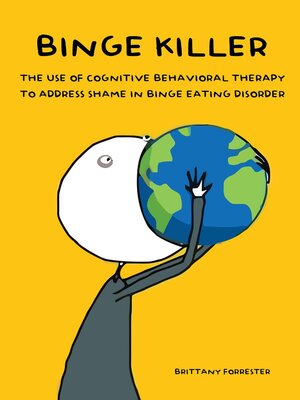Binge Killer the Use of Cognitive Behavioral Therapy to Address Shame in Binge Eating Disorder
ebook
By Brittany Forrester

Sign up to save your library
With an OverDrive account, you can save your favorite libraries for at-a-glance information about availability. Find out more about OverDrive accounts.
Find this title in Libby, the library reading app by OverDrive.



Search for a digital library with this title
Title found at these libraries:
| Library Name | Distance |
|---|---|
| Loading... |
Research on Binge Eating Disorder is limited compared to studies on other eating disorders, including Anorexia Nervosa and Bulimia Nervosa. Given that Binge Eating Disorder recently became an independent diagnosis in the DSM-5, has significant medical implications, and commonly involves psychiatric comorbidity, it is worthwhile to explore contributing factors and evidence-based treatment for the disorder.
Cognitive Behavioral Therapy is an evidence-based treatment for Binge Eating Disorder, and most experts agree that while it yields positive treatment results, there is room for improvement in treatment. Shame is an important contributing factor in the development and maintenance of Binge Eating Disorder.
Cognitive Behavioral Therapy is focused on the premise that an individual's thoughts, feelings and behaviors are intertwined and can ultimately be restructured to support more productive actions. Historically routed in the treatment of depression and anxiety, CBT is becoming more prevalent in eating disorder treatment settings, particularly more recently, with Binge Eating Disorder.
CBT focuses on three phases of treatment: the behavioral phase, cognitive phase and maintenance and relapse phase.







